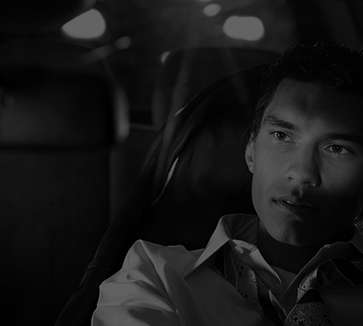OWI Defense Attorneys in Glendale, WI
Drunk driving defense attorneys serving Milwaukee County
Grieve Law offers award-winning OWI attorneys to Glendale, Wisconsin, and the surrounding communities. First offense OWI penalties in Glendale, Wisconsin, include a $150 to $300 fine, an additional surcharge, and license revocation for 6-9 months. In Wisconsin, OWIs escalate to a felony starting on the fourth offense. Glendale PD arrested 63 individuals for OWI in 2020. These arrests accounted for 2.5% of the OWI arrests in Milwaukee County (2,438).
Whether it be your first offense, second offense, third offense, fourth offense, or fifth offense OWI charge, our Glendale OWI drunk driving lawyers will fight to drop or reduce charges.
If you face OWI charges in Glendale call Grieve Law's criminal defense attorneys for a free consultation.
What constitutes an OWI in Glendale, WI?
In Glendale, Wisconsin, an OWI (Operating While Intoxicated) involves operating a motor vehicle while impaired by alcohol, drugs, or other illegal or restricted substances that affect your ability to drive safely. According to Wisconsin state law, here's what qualifies as an OWI in Glendale:
Blood Alcohol Concentration (BAC) Limits
- 0.08% or higher for drivers aged 21 and older.
- 0.04% or higher for drivers operating commercial vehicles.
- 0.02% or higher for drivers with three or more prior OWI convictions.
- Any detectable amount of a restricted controlled substance in your system (such as recreational drugs like cannabis or prescribed drugs that impair driving).
Impairment Standard
Even if your BAC is under the legal limit, you can still face OWI charges if law enforcement determines that alcohol, drugs, or a combination of both has impaired your ability to drive.
Refusal to Take a Chemical Test
Wisconsin's implied consent law requires you to submit to a chemical test (breath, blood, or urine) if you're lawfully arrested for an OWI. Refusing to comply can lead to additional penalties, such as license revocation and the installation of an ignition interlock device.
Aggravating Factors
Certain conditions can elevate the seriousness of an OWI charge:
- Driving with a minor under 16 years old in the vehicle.
- Causing injury or death while operating under the influence.
- Prior OWI convictions.
Schedule A Free Appointment With Award-Winning Glendale OWI Lawyers
The drunk driving attorneys at Grieve Law bring extensive experience and expertise in defending OWI cases in Glendale. Our team consists of lawyers from both sides of Wisconsin’s criminal justice system, giving us valuable insight into fighting OWI charges. We successfully reduce or dismiss OWI charges in Glendale through meticulous case preparation and aggressive legal advocacy. Our goal is to keep penalties to a minimum or avoid conviction entirely. Whether you face a misdemeanor, felony or drug-related OWI charge, Grieve Law can help. For personalized guidance on navigating your drunk driving charge, contact our Glendale criminal defense law office for a free consultation.
What is the difference between an OWI and a DUI?
OWI is referred to as Driving While Intoxicated (DWI) and Driving While Under the Influence (DUI). The correct legal terminology for the charge in Wisconsin is Operating While Intoxicated. A driver in Wisconsin can be charged with Operating While Intoxicated (OWI) if their blood alcohol concentration is 0.08% or higher. OWI laws apply to any intoxicating substance, including alcohol, marijuana, cocaine, and more.
Penalties for OWI Offenses in Glendale, WI
The penalties for an OWI conviction depend on whether it is a first, second, third or fourth offense. Repeat offenses lead to harsher sentences, including higher fines, longer license revocation and a higher chance of jail time.
First Offense OWI Penalties
First offense OWI penalties in Glendale include fines between $150 and $300, license revocation for 6–9 months and an AODA assessment with follow-up treatment. If your BAC was over 0.15, you’ll also need to install an ignition interlock device (IID) for one year. Total court-related costs typically run $900–$1,000.
Though non-criminal, a first offense can become a misdemeanor if a minor under 16 was in the vehicle or if someone was injured. In those cases, penalties include 5 days to 6 months in jail, fines from $350 to $1,100 and extended revocation/IID periods of 12–18 months.
Additional consequences may include a $20,000–$30,000 lifetime financial burden due to higher insurance rates, restricted international travel and demerit points on your driving record. Improper IID use or driving outside of occupational license hours can lead to new criminal charges.
Second Offense OWI Penalties
Second offense OWI penalties include 5 days to 6 months in jail, 12–18 months of license revocation and a mandatory ignition interlock device for the same period. Fines range from $350 to $1,100 and total court costs can exceed $1,500. An AODA assessment and follow-through treatment are also required after a second OWI conviction.
If a minor was in the vehicle, penalties double: 10 days to 1 year in jail, fines up to $2,200 and 2–3 years of license revocation and IID installation. A conviction may also limit international travel and affect job opportunities. The IID alone can cost $1,000 or more annually.
Third Offense OWI Penalties
Penalties for a third offense OWI are higher, as jail time ranges from 45 days to 1 year with immediate custody required upon sentencing. Courts often grant Huber release so you can continue working. Fines range from $600 to $2,000, but BAC levels above .17 can multiply them up to $8,000. Additional court fees and surcharges apply.
Driver’s license revocation lasts 2–3 years and your ignition interlock device must remain installed for 1–3 years. Timing matters: you can’t apply for an occupational license until after 45 days and the IID period starts once it’s installed. If a child was in the vehicle at the time of the offense, jail time doubles to a minimum of 90 days and up to 2 years.
Fourth Offense OWI Penalties
A fourth OWI offense in Glendale becomes a felony, carrying steep penalties, increasing with prior convictions and aggravating factors. Beyond fines and jail time, the consequences include long-term license revocation, mandatory sobriety and significant restrictions on driving and travel. Fourth offense OWI penalties include:
- Up to 6 years in jail
- Driver's license revocation for 2-3 years after conviction
- Driver's license revocation for life with no possibility of an occupational license if previously convicted within 15 years
- Up to $10,000 in fines
- Absolute sobriety for an occupational license
- Mandatory alcohol assessment and treatment
- Up to 3 years of a required ignition interlock device in your vehicle(s)
- ‘Driver improvement’ surcharge of $435
- Travel ban to Canada (and some restrictions with traveling to the European Union)
- Possible community service
- Learn more about 4th offense DUI/OWI charges in Wisconsin
Can I Reduce My Drunk Driving Charges?
The short answer - yes. If you are charged with drunk driving in Glendale, an experienced OWI defense attorney is critical to fighting to reduce your penalties. You are more likely to be successful in fighting your charges if it is your first offense and you begin fighting the charges before you are convicted. The OWI defense lawyers at Grieve Law strategically examine case specifics to build arguments and reduce charges. With proper legal representation, drunk driving charges often do not have to be as severe as they initially appear.
Our Glendale OWI Lawyers Specialize in Drunk Driving Charges
If you are facing an OWI charge in Glendale, a criminal defense attorney who specializes in drunk driving cases can properly examine the details of your arrest and build a strategic defense to fight the charges. Grieve Law’s OWI attorneys have in-depth knowledge of Wisconsin’s drunk driving laws and have proven success navigating OWI cases. Trying to handle your OWI case alone puts you at a major disadvantage and often leads to conviction. Don’t take chances with your future. Contact our team to discuss retaining an OWI defense attorney to protect your rights in court.
What are your odds of winning a Wisconsin OWI case without a lawyer?
Simply put, very low. Defending yourself against an OWI charge without legal counsel is extremely risky and not recommended. Defending yourself in court requires effectively handling questions and presenting arguments under pressure - something best left to an experienced OWI attorney. The consequences of losing your case are too severe to take chances.
Grieve Law’s OWI lawyers have successfully fought drunk driving charges and know how to strategically secure the best outcome for your case. An accomplished drunk driving defense attorney can make all the difference in achieving a positive result. Contact Grieve Law to retain skilled legal representation for your Glendale OWI case.
How much does an OWI cost?
An OWI conviction brings steep financial consequences. The cost of an OWI can extend past $30,000 after fines, court costs, increased insurance rates and other expenses.
The best way to avoid long-term costs is to hire a skilled OWI defense lawyer. An experienced attorney builds the strongest case possible defense to either get your charges reduced or dismissed.
What if I can't afford an OWI lawyer in Wisconsin?
Grieve Law believes high-quality legal representation should be attainable for anyone facing OWI charges. We offer payment plans to clients who cannot afford the full attorney fees upfront. By spreading payments over an established timeframe, we make our services accessible regardless of your current financial situation.
Fighting your OWI charge with a top defense lawyer is worth the investment. Contact Grieve Law to discuss customized payment solutions for retaining our skilled attorneys.
Whitefish Bay OWI Attorneys
How long does an OWI stay on your record in Glendale?
OWIs stay on your record forever, and there is no way to remove them. A lot of other offenses have the opportunity for expungement to be sealed, but OWI cases are not eligible. They will remain on your driving record and criminal record forever.
How to beat an OWI charge in Glendale
There are many issues to address in an OWI charge in Glendale, whether first, second, third, or fourth offense. Possible defenses range from constitutional violations to collateral attacks and so much in between. It is important to have an OWI attorney who knows the different things to look at when defending you in this type of case. You are only guilty if you are convicted.





